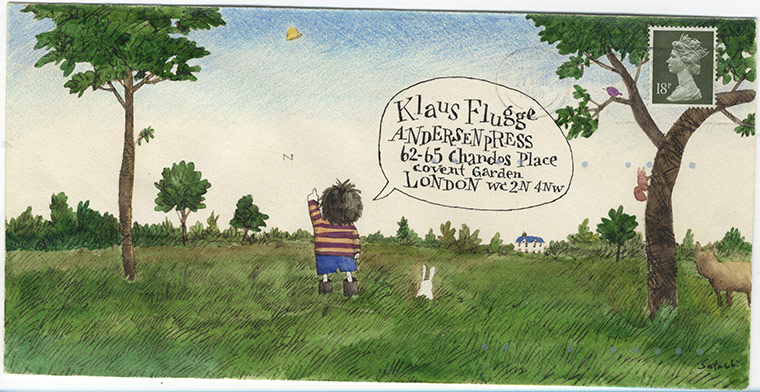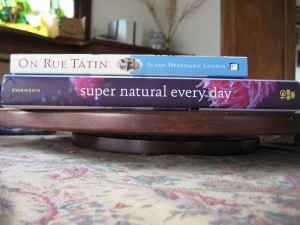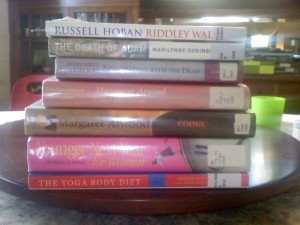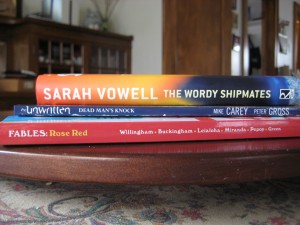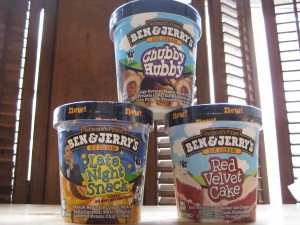Every year Mental Multivitamin reminds us of St. Crispin’s Day, October 25th, and of its central role in the battle speeches of Shakespeare’s Henry V. Every year I watch the video of that speech, am moved to tears, and am glad for the reminder of Branah’s Henry V, which was my gateway into both film and Shakespeare.
In early 1990, I was trying to clean up my act, having gotten into no little trouble from partying too much. One Friday night, a friend invited me to see Henry V at an arthouse theater in DC* where it was showing on a giant screen. At 2 hours and 17 minutes, the run time had me worried. I suspected I’d be bored, but also figured it was better than the alternative, which was staying home in baggy sweats to study. I got my treat of choice for that era**, a small Sprite and a box of Milk Duds. I remember it was a particularly fresh box. The chocolate-coated caramels were soft and gooey, not hard and stale.
“Fresh off the Dud tree,” my friend joked.
The movie began, and drew me in immediately:
O! for a Muse of fire, that would ascend The brightest heaven of invention; A kingdom for a stage, princes to act and monarchs to behold the swelling scene. Then should the war-like Harry, like himself, assume the port of Mars; and at his heels, Leash’d in like hounds, should famine, sword, and fire crouch for employment.
There was the tennis ball scene. And the scene with his friends at the bar. And so 2 hours and 17 minutes flew by. I didn’t know history. I had no idea the English would win, or the historical significance of those long bows. I wasn’t familiar with Shakespeare. I didn’t always track the language, and had no idea what a stellar cast I was watching: Judi Dench, Derek Jacobi, Brian Blessed, Ian Holm. Even the rookies: Branagh as actor/director, his then-wife Emma Thompson, Christin Bale! And oh,that courtship scene:
King Henry V: Fair Katherine, if you will love me soundly with your French heart, I will be glad to hear you confess it brokenly with your English tongue. Do you like me, Kate?
Princess Katherine: [unable to understand his English] Pardonnez-moi, I cannot tell what is ‘like me’.
King Henry V: An angel is like you, Kate.
Sweet, romantic, funny, a perfect antidote to the grisly battle scenes. I loved that movie, and went to see it again. And again. And again. A total of four times at that theater; it ran for months, first on the large screen then on the small. I bought a copy of the play and read it. I bought the film on VHS, then bought it again years later on DVD. I will probably buy it yet again on Bluray. Since then I’ve seen the play and many others, on film and on stage. I’ve read many of the plays and wrote papers on them in graduate school. Twenty plus years later, it’s hard for me to imagine a time when that film, films in general, and works of Shakespeare weren’t part of my life. And every year I am reminded of that on St. Crispin’s Day by Mental Multivitamin. Thank you.
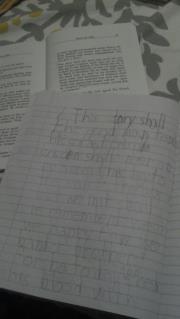
After I read this year’s MMv entry, I had a proud moment: 8yo Drake is supposed to practice handwriting every day for 15 minutes. He hates it. He moans. He flops. He procrastinates and generally makes us all miserable. I showed him the video of the speech, then opened up a copy of Henry V for Young People, which I’d hopefully bought several years ago. He moaned. He groaned. He started to copy the speech. At nine minutes he asked how much time he’d done, then banged his head on the table when I told him. But then, he got it. He got into that speech, and copied the whole thing out, and didn’t even notice when he blazed by the 15 minute mark to finish after 21 minutes. I wish I could say every writing practice since has gone as well. No dice. But for that one, brief shining moment, I could share that little thing with him, and that was more than enough.
*I think it was the Cineplex Odeon Outer Circle, since closed, which was north of Georgetown on Wisconsin Ave.
**My current favorite treat is a dozen spice drops mixed into popcorn with real butter with either water or a Mug or Sprecher root beer.









